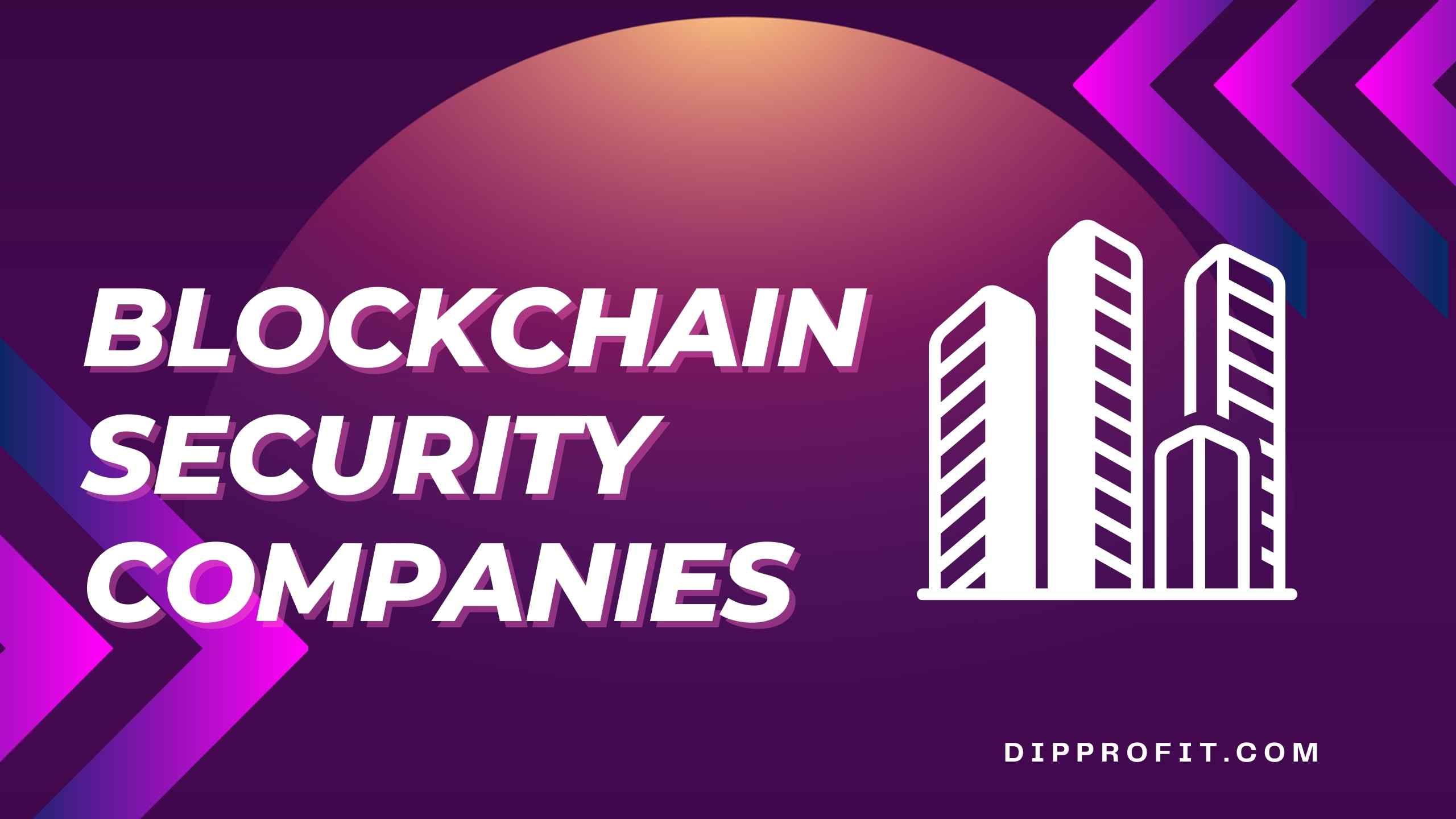
Blockchain security can be compared to a digital fortress that protects the data and transactions stored on a blockchain network.
Every blockchain is designed to be decentralized and secured, but it is not perfectly immune to security threats such as hacking, fraud, and other malicious attacks that could threaten the data being held.
What is the Blockchain?
Let’s say Alice, a government official wishes to send money to Bob via a typical payment system.
The payment system provider, for example, Paypal, would require Alice to disclose sensitive financial information, such as her bank account data and other personal documents that are government issued.
This alone would create a likelihood that her personal and private data will be stolen or tampered with in some way if by any chance the servers were to be hacked.
If Alice and Bob, on the other hand, used a blockchain-based payment system, their transaction would be validated and stored on a decentralized network of computers, removing the need for intermediaries.
Then, the sensitive information would be encrypted and kept in secure storage, making access to the data far harder for hackers and cybercriminals wanting to use her information for illegal dealings.
As this has happened, Alice and Bob can now be confident and reassured that their transaction is safe and secure because of the presence of a secure blockchain.
And that is not the only instance where a blockchain can be used. It can also be used in voting systems replacing centralized voting, identity verification, decentralized social networks, and smart contracts.
A blockchain offers the ability to distribute ledgers in a decentralized way and that is simply the key concept – decentralized ledgers of information, unlike centralized systems where the ledgers of records are stored in a single specific entity like a bank or government institution.
A blockchain shares the ledgers with its participants. that’s what makes it decentralized. This means the ledgers are written and stored in a network and its members are responsible to update and monitoring it. No record can be added without the consent of its participants.
Every block of the record is constantly synchronized by the different members of the open network creating multiple copies of all the data through a shared record-keeping system ensuring that no person or organization owns ownership of the data.
Blockchain Security
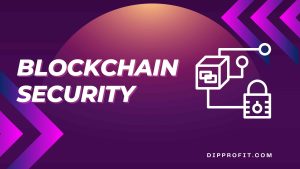
Blockchains are protected through a variety of mechanisms, including advanced cryptographic techniques and behavioral and decision-making mathematical models.
Blockchain technology is the underlying structure of most cryptocurrency systems and is what prevents the duplication or destruction of this type of digital currency.
The use of blockchain tech is also used in other contexts such as medical databases where immutability and data security are very valuable. It is not just a simple topic and therefore it is important to understand the basic concepts and mechanisms which give solid protection to these innovative systems.
Consent refers to the ability of the nodes within a distributed blockchain network to agree on the actual state of the network and on the validity of the transactions while immutability refers to the ability of blockchains to prevent the alteration of transactions that have already been confirmed.
And although these transactions are related to the transaction of cryptocurrencies, they can also refer to the registration of other forms of data
They both provide the framework for data security. In blockchain networks, network immutability provides the integrity of data and transaction logs
Hashing
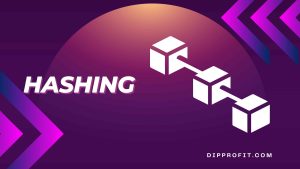
Hashing is a cryptographic method for converting any type of data into a character string that can be read by the blockchain. In most cases, it is usually deciphered using an image of a block.
Hashing works by using hash pointers to link each block to its predecessor and keeping a little data previous block before moving the data to the next block.
Since any blockchain has the hash of each transaction before grouping them into blocks the hashing function means that a change in the transaction will alter the data and produce a completely different hash which will alter all the hashes in the blockchain.
When a user creates a wallet on a blockchain they have automatically created a public private key. The address of the wallet or how its represented on the blockchain is a string of numbers and letters generated from the public key.
Blockchains are able to achieve high levels of security as distributed systems and a balance between decentralization and security is essential for the development of a reliable and efficient blockchain network.
Blockchain Security as a Service
The way every block in a blockchain is designed makes it impossible for data thieves and hackers to alter the records since editing or removing any data would invalidate the whole record.
Blockchain security service providers use blockchain technology to deliver security features such as safe data storage, identity verification, and encrypted communication.
They usually work by leveraging the decentralized nature of the blockchain to give a high level of security and transparency and may provide specialized services and solutions for specific industries or use cases.
Overall, the operation of businesses or individuals providing blockchain security services entails utilizing the unique properties of blockchain technology to secure the security and confidentiality of data and transactions.
In the next section below, I’ve listed a number of firms involved in high-quality blockchain security protection services.
Top Blockchain Security Companies

The currently leading and top blockchain security companies in the world right now are:
- ChainSecurity – a Switzerland-based company that offers smart contract auditing and verification services for blockchain networks
- BitGo – a US-based company that offers enterprise-grade security solutions for blockchain-based assets such as Bitcoin and Ethereum.
- Chainlink – a US-based company that provides secure decentralized Oracle solutions for blockchain networks.
-
Guardtime – an Estonia-based company that offers blockchain-based solutions for data security, identity, and supply chain management.
-
ConsenSys Diligence – a US-based company that offers smart contract auditing services for blockchain networks.
6. Ledger – a France-based company that offers hardware wallets for storing cryptocurrencies securely.
- CipherTrace – a US-based company that offers blockchain analytics and forensic services to help identify and prevent fraudulent and illicit activities on blockchain networks.
See also: How Can a Web3 Agency Help Grow Your Business?
Best Blockchain Data Protection Tips
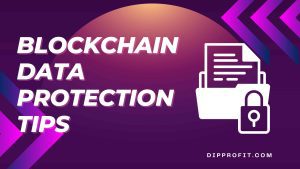
The tips in this section are mostly for companies that deal with sensitive data such as financial institutions, healthcare companies, government agencies, and other large-scale industries that handle large amounts of data where there are often targeted by cybercriminals as a result of the value of the data being held.
- Secure the network infrastructure: Large-scale industries and companies should ensure that their network infrastructure is secure and protected from cyber-attacks. This includes implementing firewalls, intrusion prevention systems, and other security measures.
-
Use private blockchain: Large-scale industries and companies should consider using a private blockchain for sensitive data. This provides more control over who can access and view the data.
-
Implement role-based access control: Implement role-based access control to ensure that only authorized personnel can access sensitive data. This helps to reduce the risk of data breaches and cyber-attacks.
-
Use decentralized data storage: Decentralized data storage can help to reduce the risk of tampering or hacking. It also provides better data availability and reliability.
-
Regularly conduct security audits: Large-scale industries and companies should regularly conduct security audits to ensure that their systems and processes are secure and up-to-date. This helps to identify any vulnerabilities and areas for improvement.
Major Challenges with Blockchain Security
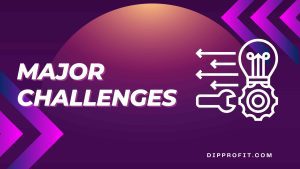
Every blockchain deals with five major vulnerabilities when it comes to blockchain security. In this section, we would be looking at five major patterns that have been avoided in the implementation of blockchain technology.
And they are:
- Security adoption issues: There are numerous problems in blockchain and security issues are one of them so what are the weaknesses in blockchain as far as security is concerned?
Blockchain designs for example differ in architecture because some are more secure than others.
For instance, blockchains are more susceptible to 61% of attacks than centralized databases. This has become a problem for crypto enthusiasts who want to keep their assets on decentralized chains delving a bit into the details of how 51% attacks work, they exploit an inherent loophole in decentralized systems that allows users to control a chain by wielding over 51% of the processing power. This usually happens on networks utilizing the proof of work standard. Permissionless blockchain systems with low hash rates are particularly prone to these types of attacks. - Flash loan attacks: These types of attacks are usually leveraged against smart contracts and DeFi ecosystems because they offer non-centralized loans. Most blockchain networks also lack KYC requirements, as such, the hackers can make use of arbitrage loopholes to manipulate token value and withdraw profits to other networks without adequate blockchain security.
- Coding loopholes: Besides hacks, blockchain security companies and systems are also susceptible to coding loopholes. centralized blockchains are usually more vulnerable as all hackers have to do is undermine specific points of failure. In many instances, entities holding the blockchain keys such as private keys are targeted allowing hackers to transfer assets from wallets that are native to the system.
- Centralization of Information: Another security problem that affects blockchain security is the centralization of information especially in blockchains that rely on external sources. Some networks utilize Oracle systems to determine pricing on their ecosystems and in some cases led to very huge losses. An instance where blockchain security has been compromised was in November 2020 when a protocol lost millions of dollars due to a price discrepancy.
- Susceptibility to Rug pulls: Another major problem that tampers with blockchain security is rug pulls. They are manipulative maneuvers that involve advertising and marketing projects to draw multiple investors at once to increase profits. These types are very common in the crypto industry.
See also: Bitcoin Price Crash: Here Are Some Reasons Why BTC Price Crashed Today 19th April 2023
Job Opportunities in Blockchain Security

The growing adoption of blockchain technology in various industries has led to an increase in demand for skilled professionals in blockchain security. Here are some of the job opportunities in blockchain security:
- Blockchain Security Engineer – responsible for designing and implementing secure blockchain solutions, protecting data from hacks and breaches.
-
Blockchain Security Consultant – responsible for advising businesses on the security risks and benefits of blockchain technology and helping to design and implement secure blockchain solutions.
-
Smart Contract Auditor – responsible for reviewing and auditing smart contracts to ensure they are secure and free from vulnerabilities.
-
Cryptography Expert – responsible for designing and implementing cryptographic protocols and algorithms to secure blockchain networks.
-
Blockchain Security Analyst – responsible for monitoring blockchain networks for security breaches, investigating and reporting any suspicious activity.
-
Penetration Tester – responsible for testing the security of blockchain networks by attempting to hack, exploit vulnerabilities, and identify potential threats.
These are just a few examples of the many job opportunities that exist in the blockchain security field.
Find the one which suits you and apply to start working. You can also take a look at our Job Board to get started.